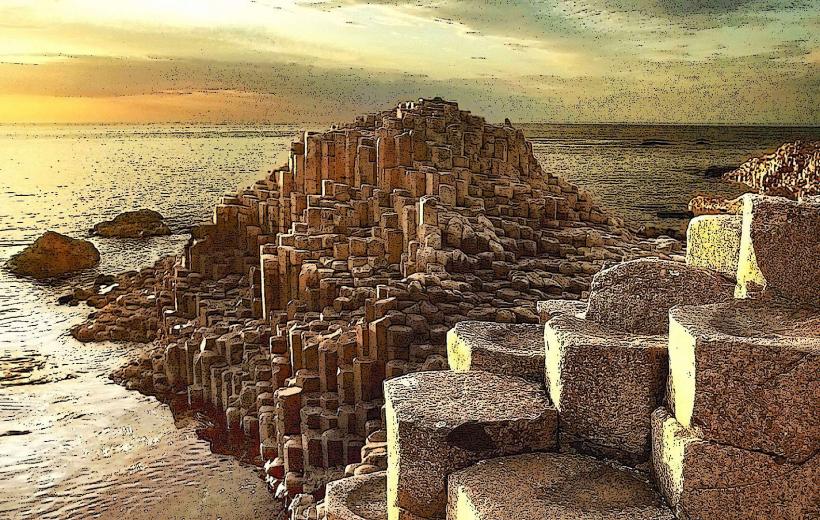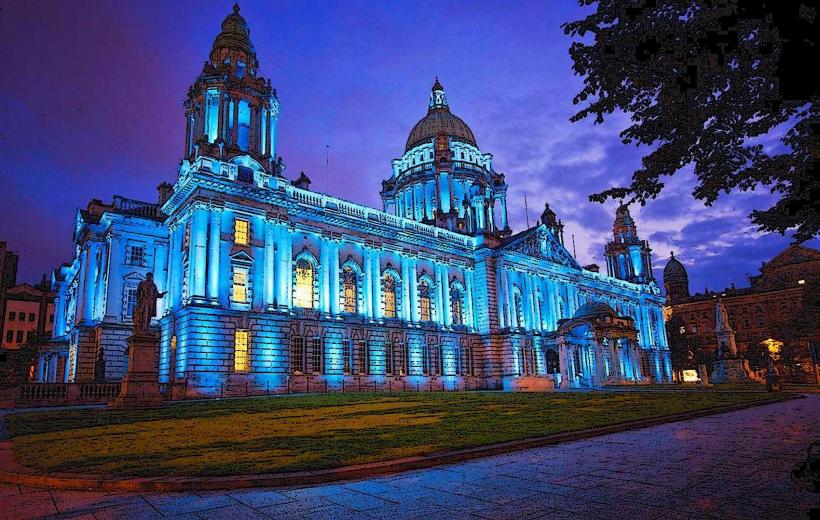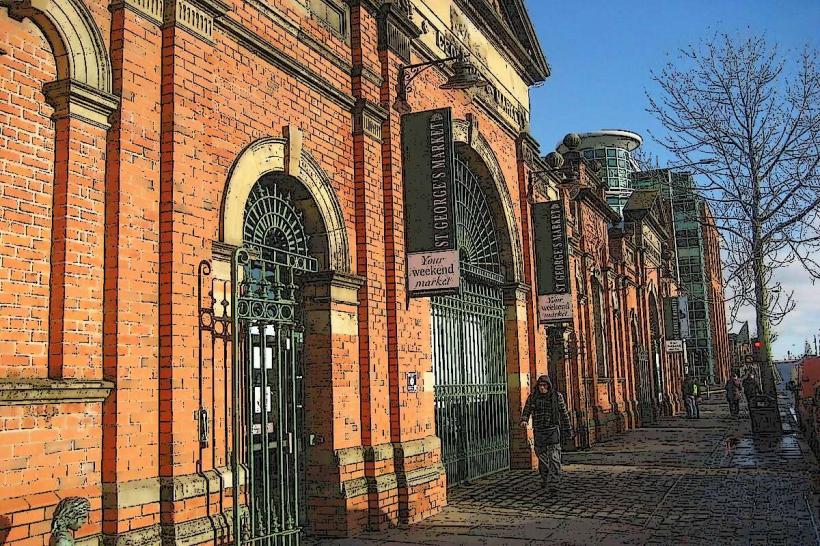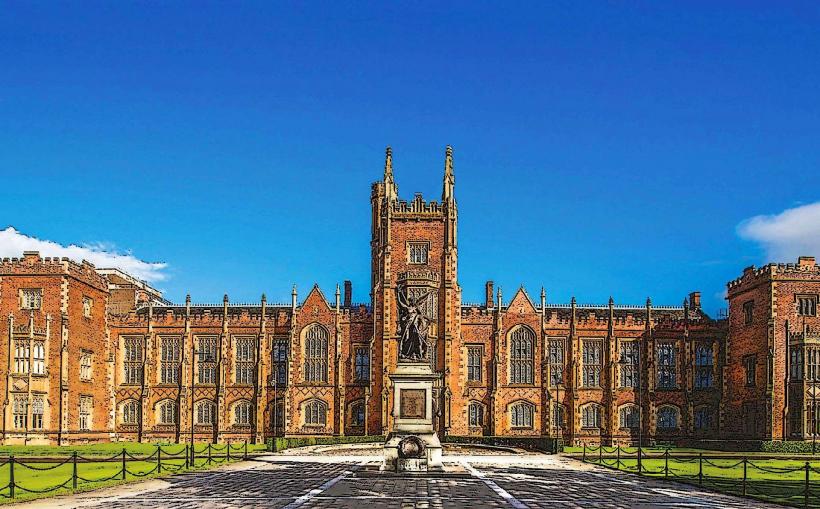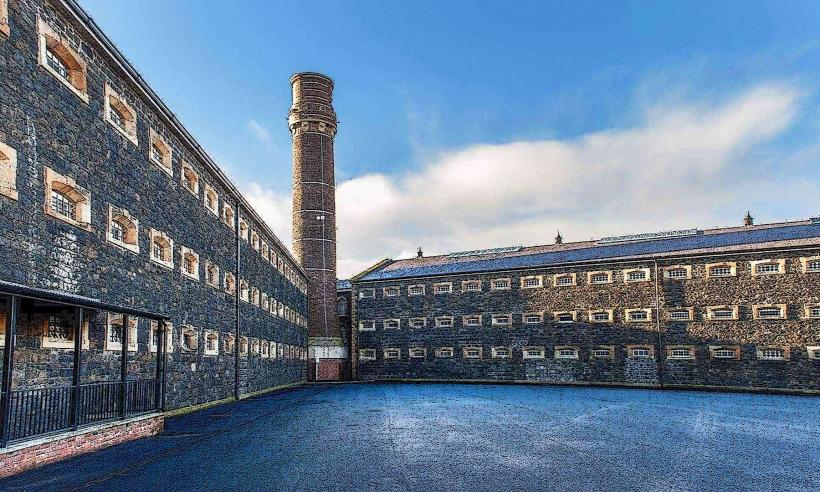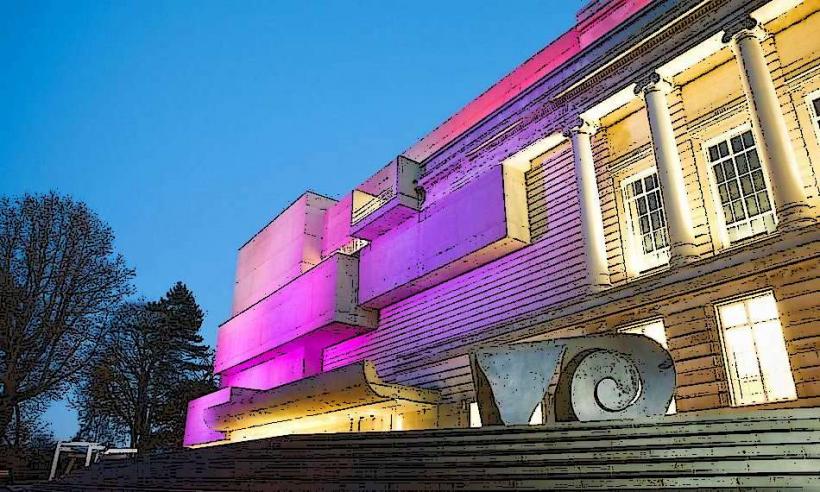Information
Landmark: Titanic BelfastCity: Belfast
Country: United Kingdom
Continent: Europe
Titanic Belfast is a world-renowned museum and visitor attraction located in Belfast, Northern Ireland. It is dedicated to the legacy of the RMS Titanic, the infamous ship that was built in the city, and it provides an immersive and educational experience about the ship's construction, its tragic sinking, and its cultural significance. Here's a detailed look at Titanic Belfast:
History and Background
The RMS Titanic: The Titanic was a luxury passenger liner that was built in the early 20th century by the Harland and Wolff shipyard in Belfast. The ship famously struck an iceberg during its maiden voyage in 1912, resulting in the loss of over 1,500 lives. The disaster is one of the most well-known maritime tragedies in history.
Titanic Quarter: Titanic Belfast is located in the Titanic Quarter, a regenerated area of Belfast’s waterfront, which was once the heart of the city's shipbuilding industry. The museum sits near the site where the Titanic was constructed at Harland and Wolff shipyard. The museum's location reflects its deep ties to the city’s industrial past and the legacy of shipbuilding.
The Museum’s Design and Architecture
Iconic Structure: Titanic Belfast’s architecture is striking and modern, designed to evoke the spirit of the Titanic’s grandeur. The building’s shape is said to resemble the bow of a ship, with angular facets and sharp edges. The design reflects the forward-thinking, ambitious spirit of the early 20th century that went into the creation of the Titanic itself.
Exterior: The exterior of the museum is clad in over 3,000 shimmering stainless steel panels, which catch the light and give the building a gleaming, contemporary appearance. The exterior of the building also incorporates large glass windows, allowing visitors to view the nearby Titanic Dock and Pump-House.
Interior Layout: Inside, the museum features nine interactive galleries that explore different aspects of the Titanic’s story, from its conception to its tragic end. The design and layout of the museum are intended to take visitors on a journey through the ship’s history, combining education with emotional storytelling.
Exhibits and Galleries
Titanic Belfast’s exhibits are spread across multiple floors, each providing a unique perspective on the ship and its legacy. Here are some of the key highlights:
The Titanic Journey: This gallery takes visitors through the process of the Titanic's construction. It includes detailed exhibits on the shipbuilding techniques used at Harland and Wolff and the workers who built the ship. Interactive displays allow visitors to learn about the scale and craftsmanship involved in creating such a colossal vessel.
The Launch: This exhibit focuses on the moment the Titanic was launched into the River Lagan. It explores the excitement and anticipation surrounding the launch and the grand spectacle of the Titanic leaving its berth for the first time.
The Shipyard: A section of the museum is dedicated to the history of the Harland and Wolff shipyard, one of the largest and most famous shipyards in the world during the Titanic’s era. This exhibit gives insight into the industrial heritage of Belfast and its role in the shipbuilding industry.
The Titanic Experience: This immersive, multimedia experience tells the story of the Titanic’s voyage, with a focus on the ship’s luxury, passengers, and the fateful events of its maiden voyage. It includes audio-visual presentations, interactive displays, and a simulation of the iceberg collision.
The Sinking: This exhibit recreates the night of the sinking, featuring a powerful visual display of the Titanic’s last hours and the harrowing rescue efforts that followed. It focuses on the human cost of the disaster and the stories of the survivors.
The Aftermath: This gallery looks at the aftermath of the Titanic disaster, including the impact on maritime safety regulations, the inquiries that followed, and the cultural legacy of the tragedy. It also delves into the recovery of the wreckage and the ongoing exploration of the Titanic site.
Personal Stories: Throughout the museum, visitors can discover the personal stories of passengers and crew, from the wealthy elite in the First Class cabins to the immigrant families in Third Class. The museum brings these stories to life with historical artifacts, letters, photographs, and video testimonies.
The Dock and Pump-House: Located just outside the museum is the Titanic Dock and Pump-House, where the Titanic was fitted out before its maiden voyage. The pump-house is an original building from the Titanic’s construction and provides a fascinating look into the industrial scale of the shipbuilding process.
The Ship’s Legacy: The museum also explores the cultural impact of the Titanic story. This includes films, documentaries, books, and other media that have shaped public memory of the Titanic. It considers how the ship’s tragic fate has influenced popular culture, from the famous 1997 James Cameron film to countless books and documentaries.
Key Features and Attractions
Interactive Technology: Titanic Belfast features cutting-edge interactive technology, including virtual reality experiences, touchscreen displays, and digital storytelling tools that allow visitors to engage deeply with the history of the Titanic.
Café and Gift Shop: The museum features a café where visitors can relax and enjoy refreshments while overlooking the surrounding Titanic Quarter. The gift shop offers a variety of Titanic-themed memorabilia, books, and unique gifts.
Events and Activities: The museum hosts a range of special events, including lectures, workshops, temporary exhibitions, and film screenings. Titanic Belfast also has an education program designed to engage school groups and young visitors with interactive and informative sessions on the history of the Titanic.
Titanic Quarter and Visitor Experience
Titanic Quarter: Titanic Belfast is part of the larger Titanic Quarter, a waterfront development that includes other attractions such as the SS Nomadic, the last surviving vessel of the Titanic fleet, and the Titanic Dock and Pump-House. Visitors can explore the historic dock where the Titanic was constructed and learn more about the site’s significance.
Accessibility: Titanic Belfast is easily accessible via public transport, and there are guided tours available for those who want to dive deeper into the history of the Titanic and the museum’s exhibits.
Cultural and Educational Impact
Global Appeal: Titanic Belfast is not only a major tourist attraction but also an important educational resource. It draws visitors from all over the world, including those with a deep personal connection to the Titanic story. The museum helps preserve the memory of the Titanic while offering new perspectives on its legacy and influence.
International Recognition: Since opening in 2012, Titanic Belfast has gained international recognition, winning numerous awards for its design, exhibits, and overall experience. It has become one of the top tourist attractions in Northern Ireland and a symbol of Belfast’s transformation from an industrial hub to a modern cultural destination.
Conclusion
Titanic Belfast offers a rich and immersive experience that educates visitors on the history of the Titanic, the city of Belfast’s role in its creation, and the lasting impact of the ship’s tragic story. With its cutting-edge design, interactive exhibits, and deep historical context, Titanic Belfast is an essential stop for anyone interested in maritime history, engineering, or the story of the Titanic itself.

